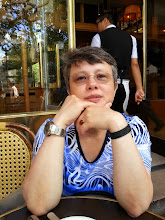"Morlang", by Tjebbo Penning, 2001, DVD, Film Movement, 2005
Morlang is loosely adapted from the true story of a couple who has decided to commit suicide together, but only the woman died, for her husband did not really want to kill himself. Morlang is a chilly drama about love, betrayal and selfishness carried to an extreme. Set against the Irish countryside and the fashionable Dutch town of Rotterdam, Morlang is the story of a successful yet aging visual artist, and the life choices he made. His wife and artistic agent Ellen, no longer inspires him. Morlang is a complicated and very selfish character, who does not hesitate to manipulate people. He pushed his wife into having an affair with a rival artist, and when she did, he withdrew in his own world and finds solace in his new muse and lover Ann. Then Morlang's wife is diagnosed with a terminal illness, which is the crucial point of the story. The couple decides to commit suicide together, but Morlang who already has started an affair with another woman decides his art, not to mention himself, is too important to be sacrificed like that. Instead, he let his wife carried on with her suicide, while he happily married his mistress Ann. Lived happily ever after then? Hardly.
Director Tjebbo Penning and writer Ruud Schuurman penned the sad story of a gifted and attractive man, with the disgusting ability to cut off his moral sense any time he feels like it. He betrayes his wife and lies to his new one. He deceives the ones he loves, but manages to remain likeable and successful in his artistry. At that point, one might ask how he does it. Alas, the movie provides with no satisfactory explanation. Instead, Penning's choice to circulate through Morlang's life with numerous flashbacks, taken from Morlang's point of view, only exacerbates the dubious subjectivity of the character. Who is he really? As the story unfolds, the viewer is left with the difficult task of making up his own mind. The only thing that seems to be clear in that movie - so to speak - is that Penning has not made up his yet. Beware of procrastination! It is as disastrous in personal life, as it is in movie making.
Penning's reliance on an overall dull colour palette, which is supposed to give us a hard feel, makes the misunderstanding even deeper. What, no moral crisis? No, even late, guilty feelings? A confession then? A glimpse into a deeply troubled, yet redeemable soul? Nope! What is left is a sort of visual hangover, the kind that leaves you wondering why you even bothered to watch this movie in the first place. Having written that, I also wish to add that - although the script is very disappointing - the cast is not. Starring Paul Freeman, Diana Kent and Susan Lynch, Morlang should have been a success story. What went wrong according to me is the tragic absence of a moral standpoint. Normally, it would not be that tragic, but it sort of becomes such in a story that is supposed to gives us clues as to why Morlang made the (bad) choices he made. Sadly, at the end of the movie, all I could think about was: who cares?













No comments:
Post a Comment